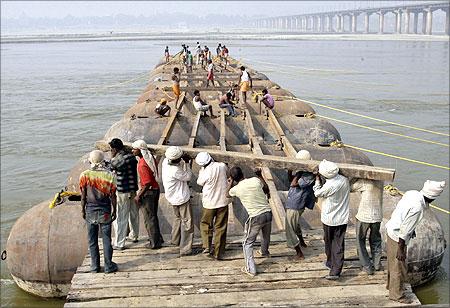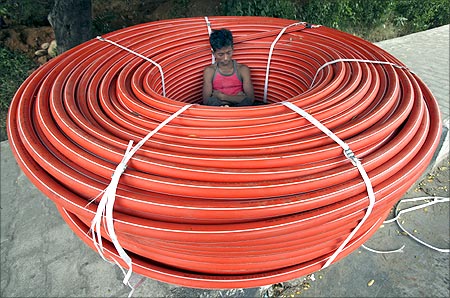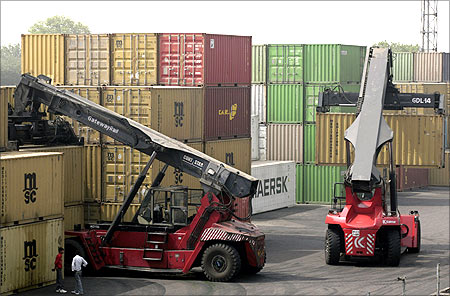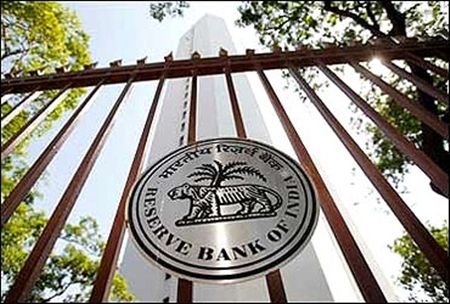Photographs: Jitendra Prakash/Reuters.
The worst could be over for the Indian economy, Swiss bank Credit Suisse said, after contending with many months of stubbornly high inflation and sluggish growth.
Robert Prior-Wandesforde, Credit Suisse's Head of Economics for South East Asia and India, said at the bank's 2012 Macro Conference: "The way I saw India in 2011 was that everything that could have gone wrong did go wrong. Growth surprised on the downside; we were at the bottom of the consensus but it was even lower than we anticipated.
...
Worst is over for the Indian economy: Credit Suisse
Image: A labourer sleeps in a roll of underground cables at a construction site in Jammu.Photographs: Mukesh Gupta/Reuters.
"Inflation failed to come down for the majority of the year and remained high and sticky, and as a result of that interest rates rose far more than anybody anticipated," he added.
But alongside the "remarkable" drop in India's food inflation numbers recently - down to (-) 3.36 per cent during the week ended December 24 from 0.42 per cent in the previous week - Prior-Wandesforde noted that the softening of global commodity prices could also help bring down the country's Wholesale Price Index (WPI) to below 6 per cent in this calendar year.
...
Worst is over for the Indian economy: Credit Suisse
Image: Workers stand beside the stacked containers in Rajasthan.Photographs: Vijay Mathur/Reuters.
"We are in a situation where growth is still poor and will remain poor for much, if not most, of 2012. But inflation is coming down, and meaningfully so. And that drives lower interest rates," Robert Prior-Wandesforde said.
If you think of those three key macro drivers, whereas all three was negative in 2011, two of those three will be positive in 2012; and, I think will deliver much better equity market performance in 2012."
...
Worst is over for the Indian economy: Credit Suisse
Image: Indian currency notes are stapled to form a garland at a shop in Jammu.Photographs: Mukesh Gupta/Reuters.
A combination of sub-7 per cent inflation and sub-7 per cent gross domestic product growth persisting through 2012, he explained, would allow the Reserve Bank of India to deliver a "meaningful set of rate reductions."
"What we are going to see, in our view, is a cut in the CRR (cash reserve ratio) in March by 25 basis points, and the first repo rate reduction in April. We are looking for a total, at the moment, of 125 basis points of rate reductions during fiscal year 2012-13," Prior-Wandesforde added.
...
Worst is over for the Indian economy: Credit Suisse
Image: Reserve Bank of India.Photographs: Reuters.
At the same time, given the policy paralysis that the government is ostensibly suffering from, investors are unlikely to expect major structural reforms to come through, though any such progress will be seen as "a bonus for the market".
"I don't think any investor should assume that there's going to be significant structural reforms. But I think what's key here is that, I suspect, no investor is expecting any key structural reform. So, in that sense, it should be priced in," he said.







article